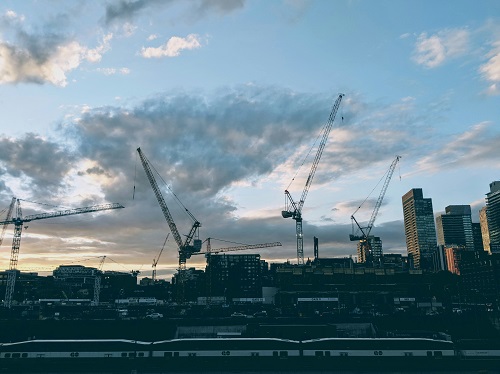Lack of homes in the GTA? False. “Thousands of apartments unsold” (and empty)
TORONTO – The “lack of houses” justification, given by the federal government to support the recent crackdown on immigration (read our previous article here), appears totally founded in the face of the data presented to The Canadian Press (here the article) by real estate operators in the Toronto metropolitan area: in a nutshell, they say the houses are there, of course. And we are talking about thousands of new, unsold, empty apartments. Reason: the combination of interest rates that are still too high (and in any case very high for a long time) and the increase in new condominium units has led to an excess supply that “will take time to balance”. And, we add, with the cut in the number of immigrants (whether workers or students) it will be even harder to fill those empty apartments. But let’s go in order.
According to a report by TD economist Rishi Sondhi, sales activity hasn’t absorbed supply fast enough, with July condo resales in the GTA down 25% from pre-pandemic levels. Sondhi told The Canadian Press that the trend is linked to factors such as a wave of newly built condominiums, high debt rates that have made it difficult for some buyers to close their mortgages, investors trying to sell properties due to falling rents and, therefore, no longer profitable.
Sondhi’s report shows that about 19,000 apartments were completed in the GTA between January and July this year, compared to about 12,000 in the same seven-month period in 2023 and 10,000 the year before.
That pace suggests this year could see a “record-high” condo completion in the GTA, Brendon Cowans, a representative for Toronto-based brokerage Property.ca, told The Canadian Press. Many new homes, with a “small” problem: who will buy them with interest rates still so high? “All this supply comes in a high interest rate environment. It’s not a lovely combination…” comments Cowans.
According to data from real estate firm Zoocasa, apartments on the market in the GTA increased 63.9% in July compared to the same month last year, rising from 5,416 to 8,879. The city of Toronto saw a similar jump, with condo for sale listings up 61.5% year-over-year over the same period. And the same trend is also seen in other major cities in Canada. Year over year, the number of apartments on the market increased by more than 40% in London, Hamilton-Burlington, Mississauga and Ottawa in Ontario, as well as Vancouver, Montreal and Calgary each saw growth of about 23%.
Furthermore, with the increase in interest rates in the last three years, the cost of maintaining real estate investments, such as condominiums, has also increased.
And the situation will only get worse, as the wave of buildings nearing completion will continue to increase supply. But there are also those who are optimistic, like Debbie Cosic, founder and CEO of In2ition Realty, who believes that the oversupply conditions are temporary. “We’re expecting next year to be a very strong year because we believe interest rates will continue downward. We believe the oversupply is coming from the public just standing back to see when the market hits rock bottom. We believe it’s hit rock bottom” she said.
Yes. But if the number of “newcomers” drastically decreases, as decided by the federal government, who will fill those empty spaces?
Photo by Omar Flores on Unsplash



